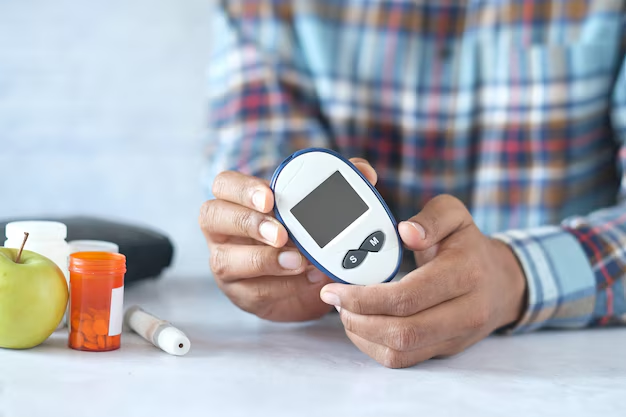Your Guide to What Is a Diabetes Doctor Called
What You Get:
Free Guide
Free, helpful information about Diabetes FAQ and related What Is a Diabetes Doctor Called topics.
Helpful Information
Get clear and easy-to-understand details about What Is a Diabetes Doctor Called topics and resources.
Personalized Offers
Answer a few optional questions to receive offers or information related to Diabetes FAQ. The survey is optional and not required to access your free guide.
So, What Exactly Do You Call a Diabetes Doctor?
Living with diabetes can be a complex journey, requiring dedicated attention to manage health effectively. If you've recently been diagnosed or know someone who has, you may wonder: What do you call a doctor who specializes in diabetes? These healthcare professionals are known as endocrinologists.
What Is an Endocrinologist?
An endocrinologist is a medical doctor who specializes in the endocrine system, which is the collection of glands that produce hormones regulating metabolism, growth and development, tissue function, sexual function, reproduction, sleep, and mood, among other things. Diabetes is a common condition they manage, alongside others like thyroid diseases, metabolic disorders, and some types of cancer. Seeing an endocrinologist is essential for individuals with diabetes because they offer a tailored approach to complex medical needs, helping to prevent complications and maintain overall health.
The Role of an Endocrinologist in Diabetes Care
- Diagnosis and Assessment: They determine the type of diabetes and assess any complications.
- Treatment Plans: Endocrinologists create personalized treatment plans that may include medication, insulin therapy, diet, and exercise.
- Monitoring and Adjustment: They continually monitor a patient's blood sugar levels and adjust treatments as necessary.
- Education: They educate patients on how to manage their diabetes effectively.
Exploring Diabetes Management Beyond Medical Appointments
While medical treatment plays a crucial role in diabetes management, many patients need extra support to afford these healthcare services and treatments. This is where several financial aid programs and educational opportunities can make a significant difference.
Government Aid Programs for Diabetes
- Medicare and Medicaid: These programs offer coverage for diabetes care and supplies.
- State Aid Programs: Check your state’s health department for specific assistance programs covering diabetes management.
Financial Assistance Opportunities
- Patient Assistance Programs: Many pharmaceutical companies offer assistance to help with the cost of diabetes medications.
- Non-Profit Organizations: Organizations such as the American Diabetes Association provide financial resource guides and may offer direct assistance.
Educational Grants and Resources
- Scholarships for Diabetes: Some organizations provide scholarships to students managing diabetes, helping ease financial burdens while pursuing education.
- Online Courses: Many trusted platforms offer diabetic education courses, teaching self-management skills and enhancing understanding of diabetes care.
Understanding these options can empower individuals living with diabetes to better manage their condition without the constant stress of financial strain. Medicine, treatment, and support are paramount, but so too are the available resources that can help individuals and families bear these costs.
Now, here's a handy list of some essential programs and resources:
- 💊 Medicare & Medicaid: Offers comprehensive coverage options for diabetes care.
- 🌟 Patient Assistance Programs: Available via major pharmaceutical companies for medication costs.
- 🏥 American Diabetes Association: Provides financial resource guides and direct support.
- 📚 Diabetes Scholarships: Financial aid for students living with diabetes, easing educational costs.
- 🔍 State-Specific Programs: Look into your state's health department for assistance offerings.
- 📈 Non-Profit Assistance: Various non-profits offer grants and support for diabetes patients.
Navigating diabetes care doesn't have to be daunting. With the right specialist in your corner and support programs at your disposal, managing your health and finances is entirely possible, enabling you to focus more on living well.
What You Get:
Free Diabetes FAQ Guide
Free, helpful information about What Is a Diabetes Doctor Called and related resources.

Helpful Information
Get clear, easy-to-understand details about What Is a Diabetes Doctor Called topics.

Optional Personalized Offers
Answer a few optional questions to see offers or information related to Diabetes FAQ. Participation is not required to get your free guide.


